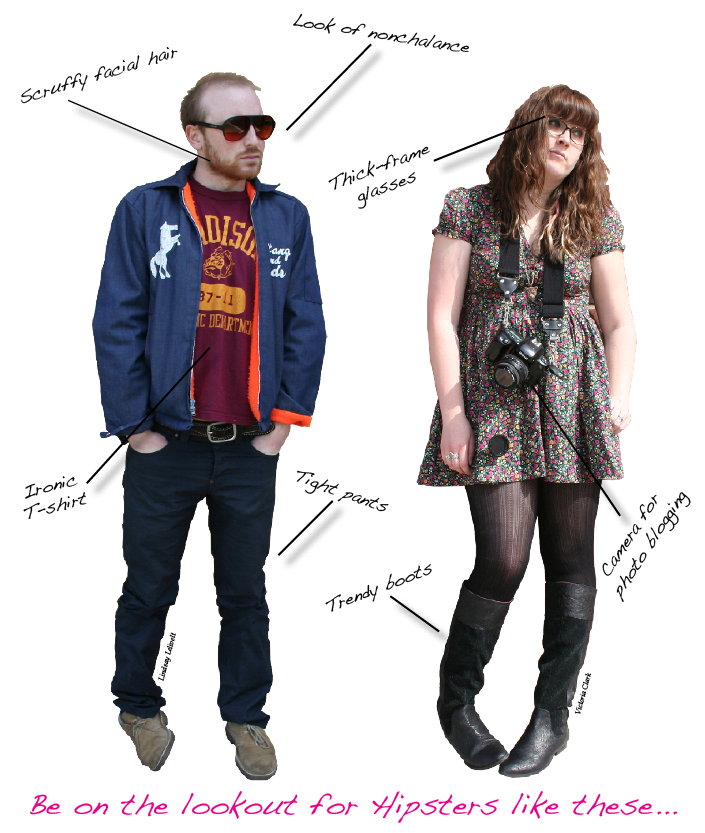If you haven’t noticed, the sun has come out. Spring is in full force and students are taking notice, shedding their wintry gear and opting for lighter, summery fashions.
Among those reemerging from the winter fashion hibernation are what some call hipsters. Just who are these hipster folk anyway you might ask? What does that word even mean?
According to Urban Dictionary, “Hipsters are a subculture of men and women typically in their 20s and 30s who value independent thinking, counter-culture, progressive politics, an appreciation of art and indie-rock, creativity, intelligence and witty banter.”
However, when you start asking around you’ll find that the definition of hipster varies widely and is often ambiguous. “[A hipster is] someone who is outside of the norm. They walk to the beat of their own drum,” Senior Political Science and Gender, Women and Sexuality Studies Major Brittany Richardson said.
“[A hipster is] someone who dwells in the obscure, underground culture,” First-year Erica Fernstrom said.
“[They fall] somewhere between the abstract and the nonconformist,” Senior Nursing Major Karen Boidoku said.
Hipsters also have a clothing style all their own. A general dislike of mainstream consumerism helps create the iconic, seemingly nonchalant dress of hipsters.
“I visualize a male hipster as having a scruffy, unkept face with a knitted hat of some sort, extremely tight pants that lengthwise stop right about the ankle with converse shoes,” Boidoku said.
“[They wear] cool, thrifty clothes,” Richardson said.
“Also excessive wearing of American Apparel and Urban Outfitters,” Fernstrom said.
Urban Dictionary states that hipsters tend to be well educated, often possessing liberal arts degrees. “[Modern day] hipsters would be the hippies during the 1960s,” Junior Art Studio Major Blong Lor said of the intellectual values of hipsters.
Along with style and perspective, there are several attributes that seem to go with hipsters. An entire collection of music, certain hobbies and even specific jargon are deemed as “hipster.”
“It’s really hard to pin down,” Fernstrom said of the hipster phenomenon. That seemed to be the over-arching sentiment of students on campus. Many are wary of stereotyping, but are aware of the trends associated with hipsters.
The portrayal of hipsters was positive from everyone interviewed, many of whom described sincere admiration. “I have plenty of hipster friends,” Boidoku said. “They’re great, unique people.”
So, sit back in your adirondak chairs and enjoy the campus come alive with spring, but don’t forget the hipsters. They may be impossible to define, but they’re out there.

